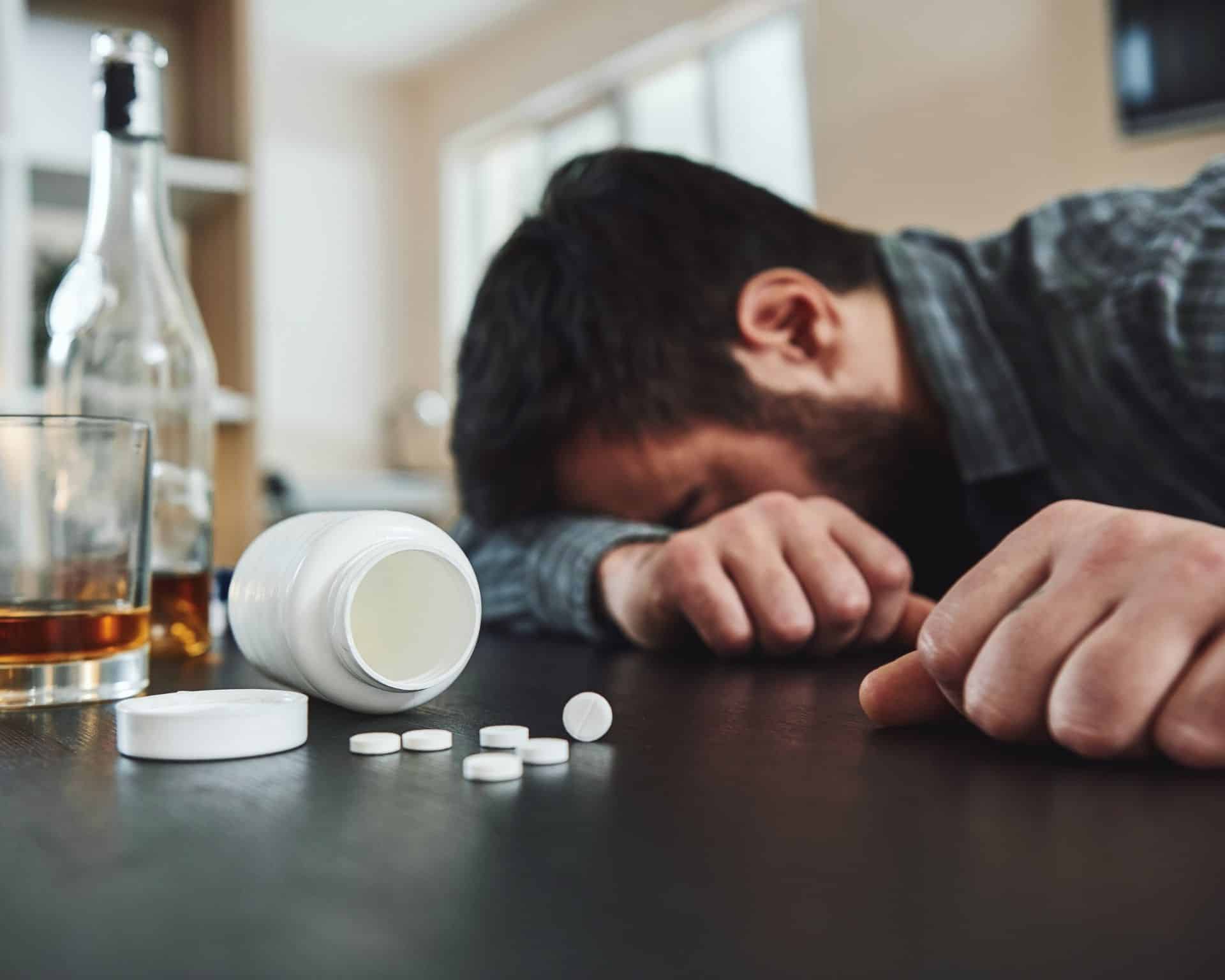Left untreated, an addiction to drugs or alcohol can be devastating for your mental and physical health. People who struggle with an addiction can face serious legal, financial, and social issues that can be difficult to overcome. Too often, addiction can be life-threatening. It is important to get treatment for addiction as soon as possible to avoid the worst consequences to yourself and others.
It can be hard to tell when drug abuse has crossed the line into an addiction. Both drug abuse and addiction can have negative consequences, but addiction is usually much harder to treat than drug abuse.
Understanding the differences between drug abuse and drug addiction can help you get the life-saving treatment you need as soon as possible.
Recognizing the Signs of Drug Abuse
An unhealthy relationship with drugs can start in many ways. Some people who receive a prescription for opioid painkillers may continue to use it for days, weeks, or months after it is intended to be used. People who begin using recreational drugs to socialize may find themselves wanting–or needing–to use them more often or in larger doses to get the same effect. Others may develop a substance use disorder (or addiction) after using drugs to self-medicate. The line between drug use and drug abuse is not always clear.
Some signs of drug abuse include:
- Getting hurt or hurting someone else when under the influence of drugs
- Being unable to keep up with your responsibilities at home, work, or school
- Continuing to use even though you are experiencing harmful consequences
- Having others express concern about your drug use
- Using drugs to numb difficult emotions, help you socialize, or avoid feeling the effects of trauma
The longer you live with untreated drug abuse, the more likely you are to experience serious, negative consequences. Drug abuse can lead to legal and financial trouble, health issues, and addiction. It is important to get treatment as soon as you realize that you are abusing drugs so that you can avoid these and get back to a safe, healthy lifestyle.
Signs of Drug and Alcohol Addiction
Any addiction has the potential to be life-threatening. Addiction is a serious condition that requires immediate, comprehensive treatment. In general, addiction is characterized by a total loss of control over your use of drugs.
Some signs of alcohol and drug addiction include:
- Increased isolation
- Decreased interest in activities you used to enjoy
- Continuing to use illicit drugs/illegal drugs or abuse prescription drugs despite experiencing negative consequences
- Increased tolerance
- Experiencing withdrawal symptoms if you stop or reduce your consumption of drugs
- Thoughts and behaviors are focused on getting, using, and recovering from using drugs
Living with untreated alcohol or drug addiction puts you at risk for health issues, such as:
- Collapsed veins
- Kidney disease and failure
- Breathing problems
- Liver failure
- Heart attack
- Stroke
- Certain cancers
- HIV/AIDS and Hepatitis B and C (related to needle sharing)
Many people with alcohol or drug addiction also develop or exacerbate existing mental health conditions. It is not uncommon for people with addiction to experience psychosis, depression, anxiety, or paranoid thoughts. People with addiction are at a higher risk for self-harm and suicide, as well as overdose.
Ultimately, the main difference between drug abuse and drug addiction is that people who are addicted to drugs experience physical and psychological cravings for the drug of choice. They are unable to stop using drugs, even when facing devastating consequences. People who abuse drugs, however, may not have crossed the line into addiction. These individuals may be able to control how often they use drugs and how much they consume. They may also be able to stop using drugs if they need to.

Get The Care You Need and Deserve
Woburn Wellness Addiction Treatment is a leader in the addiction treatment field, with proven success in facilitating long-term recovery. Our team of top clinical & medical experts specializes in treating addiction coupled with mental illness, ensuring that each person receives individualized care. Call us – we’re available 24/day, 7 days/week.
How to Treat Drug Abuse vs. Drug Addiction
You must get treatment for both substance abuse and addiction, but the treatment plan you follow might be different for drug abuse vs. drug addiction.
Drug Abuse Treatment
If you’re struggling with drug abuse that hasn’t progressed to addiction, it’s crucial to seek treatment to redirect your life towards a healthier path. Substance abuse treatment typically involves a combination of education, medications when applicable, and therapy. These interventions aim to help you identify the underlying reasons for your drug or alcohol use and equip you with new coping skills to manage life’s challenges.
Addiction Treatment
Alcohol and drug addiction represent severe conditions demanding immediate and intensive intervention. Drug addiction treatment often begins with medically supervised detoxification to manage withdrawal symptoms safely. This is followed by participation in a residential or outpatient treatment program that incorporates therapy, education, and addressing mental health or mental disorders. Importantly, addiction management is an ongoing process, emphasizing lifelong aftercare and support.
It’s essential to understand that addiction is never entirely cured; instead, it is managed over time. This necessitates ongoing efforts to stay actively engaged in recovery throughout one’s life.
Regardless of whether you are dealing with substance abuse or addiction, it is crucial to surround yourself with a supportive network and seek the necessary treatment promptly. Pay close attention to signs that your relationship with drugs or alcohol has become unhealthy, and take immediate steps to seek help. Your health, happiness, and future are invaluable, and seeking treatment is a vital step towards a better life.
Seeking Help for Alcohol Abuse, Drug Abuse and Addiction
If you or a loved one is grappling with drug or alcohol abuse, it’s crucial to acknowledge that help is available. Substance abuse can lead to a range of issues, from the use of illicit drugs to the development of a dependency on substances like alcohol. It’s often influenced by factors such as family history, an individual’s brain’s reward system, and personal circumstances. It’s important to differentiate between addiction and substance abuse, as both require specific approaches to treatment.
At our substance use disorder treatment center, we understand the complexities of substance use disorders. We offer a comprehensive range of services designed to address the unique needs of individuals battling substance abuse and addiction. Our professional team is dedicated to providing the support and guidance necessary to facilitate recovery and achieve a fulfilling life beyond addiction.
Substance use disorders and addiction can affect anyone, and seeking help is a brave and essential step towards recovery. Whether you or your loved one is struggling with drug dependency or facing the challenges of substance abuse, our treatment programs are tailored to your specific situation. We believe that with the right support and treatment, anyone can overcome drug addiction and lead a healthy, fulfilling life.
Don’t wait another moment to seek the help you need. Reach out to the experienced staff at Woburn Wellness Addiction Treatment today to start your journey towards recovery and a brighter future.


